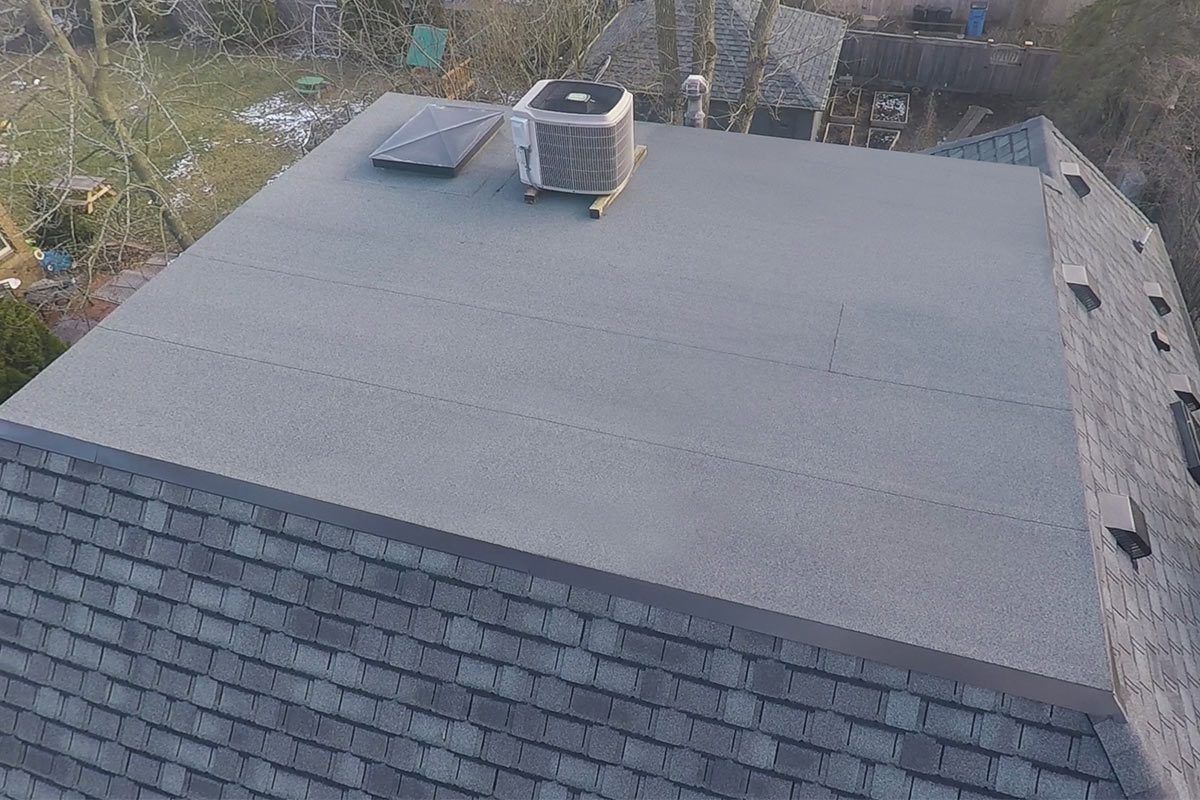Modified Bitumen Roofing: A Comprehensive Overview

Modified Bitumen Roofing: A Comprehensive Overview
Modified Bitumen roofing systems provide commercial buildings with superior protection, versatility, and durability. Combining asphalt with modifiers such as polymers, these systems enhance traditional asphalt's natural qualities, delivering strong resistance to weathering and improved flexibility.
Types of Modified Bitumen RoofingTorch-Down Roofing
Torch-down roofing is a popular modified bitumen solution, particularly suitable for flat or low-slope roofs requiring robust water resistance.
Composition: Asphalt modified with APP (Atactic Polypropylene) or SBS (Styrene-Butadiene-Styrene).
Benefits: Excellent waterproofing capabilities, flexibility, and resistance to UV rays. Offers a smooth or granular surface for enhanced durability.
Installation: Heat-welded using a propane torch, creating seamless, watertight bonds.
Cold-Adhesive Roofing
Cold-adhesive systems provide a safer, environmentally friendly alternative, ideal for sensitive environments where torch application isn't suitable.
Composition: Similar to torch-down but applied with adhesives instead of heat.
Benefits: Reduces fire risk during installation, minimal odor, suitable for occupied buildings.
Installation: Adhesive-applied, forming secure bonds without heat, ensuring effective waterproofing.
Advantages of Modified Bitumen Roofing
Enhanced Durability: Superior resistance to punctures, tears, and general wear and tear.
Flexibility: Performs exceptionally well in fluctuating temperatures, reducing risks of cracks and splits.
Waterproof Integrity: Offers high-quality waterproofing essential for low-slope or flat roofs.
Ease of Repair: Simple maintenance and repairs significantly reduce long-term costs.
Maintenance of Modified Bitumen Roofing
Effective maintenance extends the life of modified bitumen roofing systems:
Regular Inspections: Conduct routine checks for signs of wear, tears, or seam separations.
Prompt Repairs: Immediate attention to minor damages prevents significant issues.
Periodic Cleaning: Regularly clear debris and inspect drainage systems to avoid water accumulation.
Selecting the Right Modified Bitumen System
Factors influencing the choice of modified bitumen roofing include:
Building Usage: Assess building function and occupancy levels to determine suitable installation methods.
Environmental Conditions: Consider regional weather patterns, temperature extremes, and exposure to elements.
Budget and Cost-effectiveness: Balance initial installation costs against ongoing maintenance and repair expenses.
Conclusion
Modified bitumen roofing systems are robust, versatile, and offer excellent protection for commercial properties. Understanding the differences between torch-down and cold-adhesive applications, coupled with diligent maintenance practices, helps ensure longevity, structural integrity, and cost-effective protection for commercial buildings.
Be sure to check out our article about every kind of commercial roofing here: Commercial Roofing Systems Overview: A Comprehensive Guide - Roofing Tools Online
